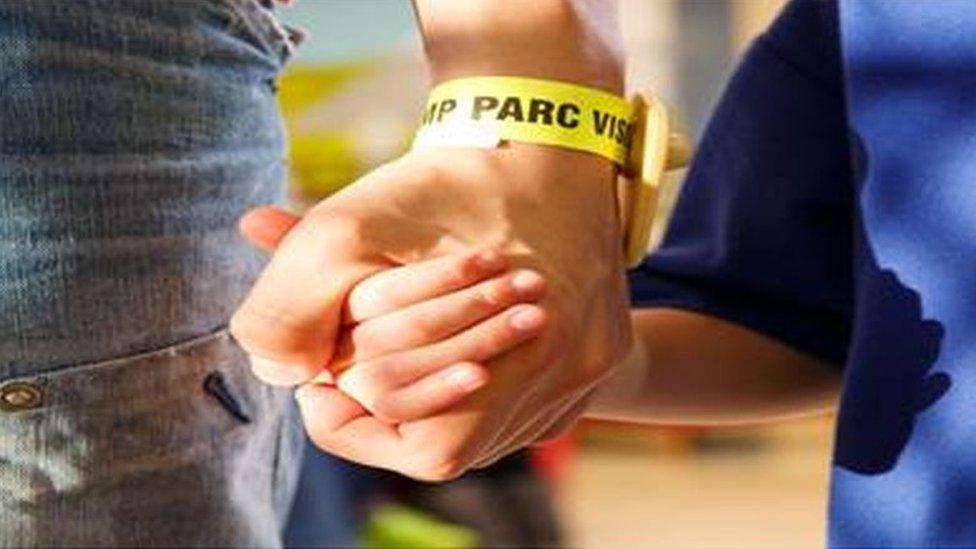Schools can do more for prisoners' children, says head
- Published
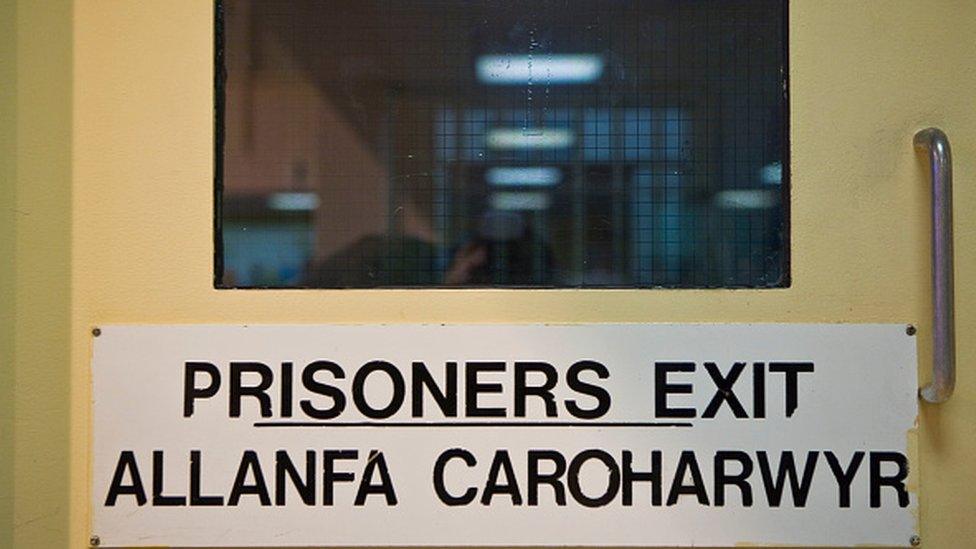
Children of prisoners suffer a "hidden sentence" of stigma and trauma, says Barnardo's
An education pack aimed at reducing trauma and stigma for children with a family member in prison should be in "every school in Wales", according to a head teacher.
Special school Ysgol Bryn Castell in Bridgend county is among the first to pilot the Barnardo's training.
The charity wants schools to be able to spot when a child is struggling, and combat bullying.
As part of the training, head teacher Helen Ridout visited Parc prison.
She said she found it an "overwhelming" experience because of the high-level of security.
"When I stood back and considered how it would feel through the eyes of a child, that was really significant," she said.
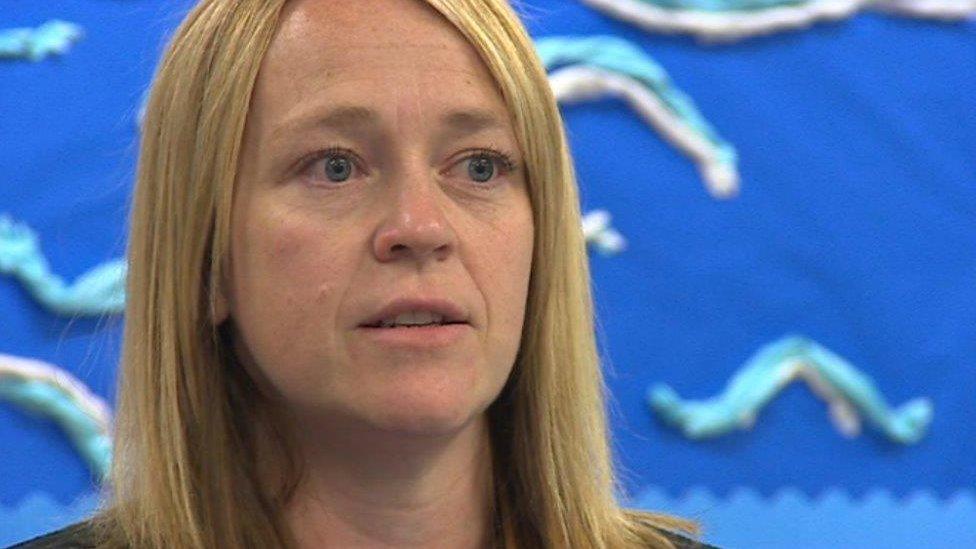
Helen Ridout says children need support even after a family member is released from prison
"We'd already experienced as a school, increases in children's challenging behaviour as a result of experiencing familial imprisonment.
"We recognised about five or six years ago that it's not necessarily just a mother or father, but actually a brother or sister going into prison or even just a close family member can have as much if not more of an impact on a child or young person."
She said the whole process - from a relative's arrest to imprisonment - had a huge impact on a child.
"Sometimes we can forget how much damage a policeman knocking on your door in the middle of the night and having your home searched can do. That isn't something a child forgets.
"It doesn't stop just because that person isn't in prison any longer. Those children need support long term to enable them to understand and process it."
Attacked with a glass bottle
Barnardo's Cymru youth worker Stacy Huston described the stigma and isolation that often results from a parent's crime and imprisonment as a "hidden sentence" for children.
One girl supported by the charity was attacked with a glass bottle because of the actions of her father.
"They're not behind the prison walls, but they're still having the vigilante groups driving up and down their streets and the bullying in schools," Ms Huston added.
"Quite often they're told by their parents or carers, 'don't tell anyone, it's secret', because of this huge stigma and judgement that goes on and how people feel about offenders. Whereas they need to know, if they need to talk to someone they can."
Staff at HMP Parc in Bridgend said they were also working to reduce the impact of inmates' imprisonment on children in their family.
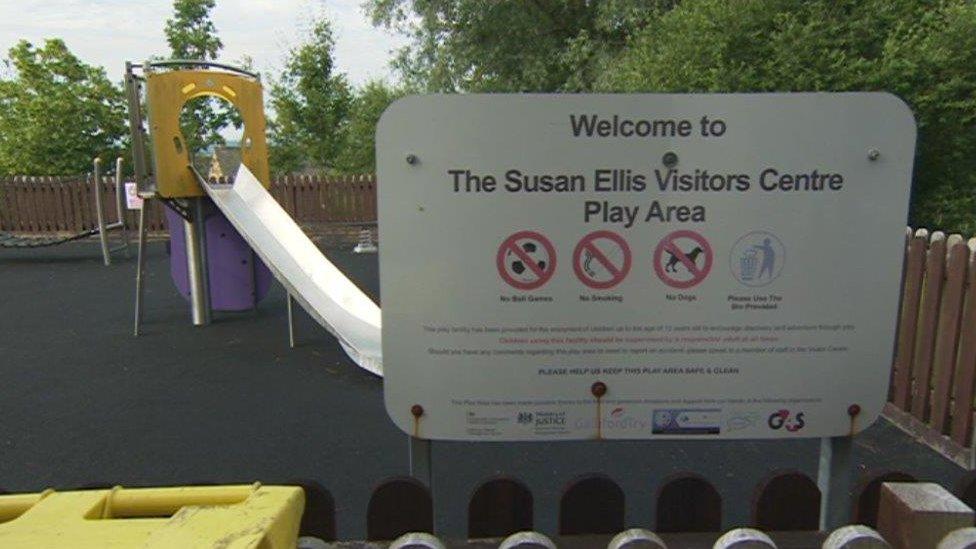
HMP Parc is one of a handful of prisons with a play area for visiting children
Between 400 and 500 children pass through their visitor centre every week, and the prison has built a play area, established a scout group, and worked with about 12 schools to arrange teacher-parent evenings within the prison walls.
G4S's head of family interventions at Parc, Corin Morgan-Armstrong said: "You can help their children be happier, healthier, and better at school."
It is also hoped helping prisoners maintain family relationships - where appropriate - will lower reoffending.
- Published11 July 2019
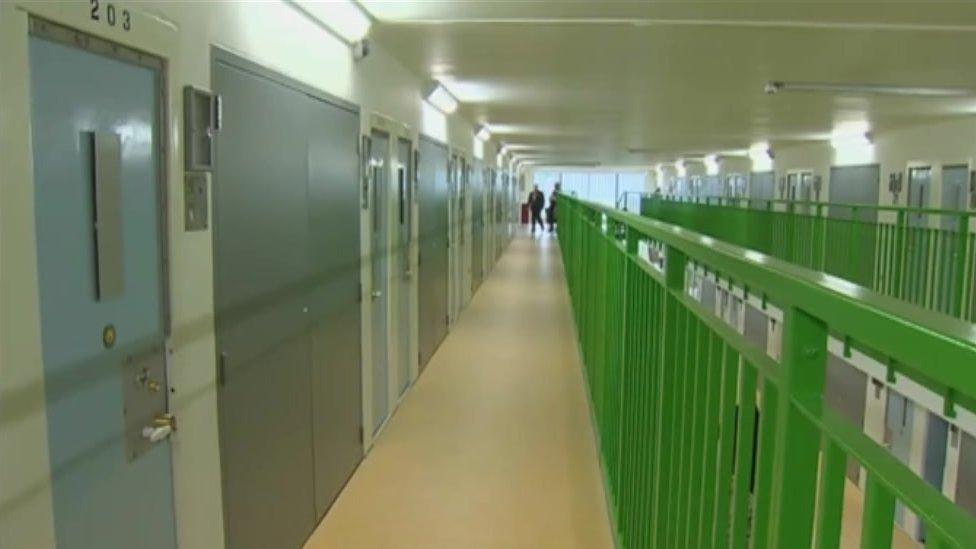
- Published17 May 2019
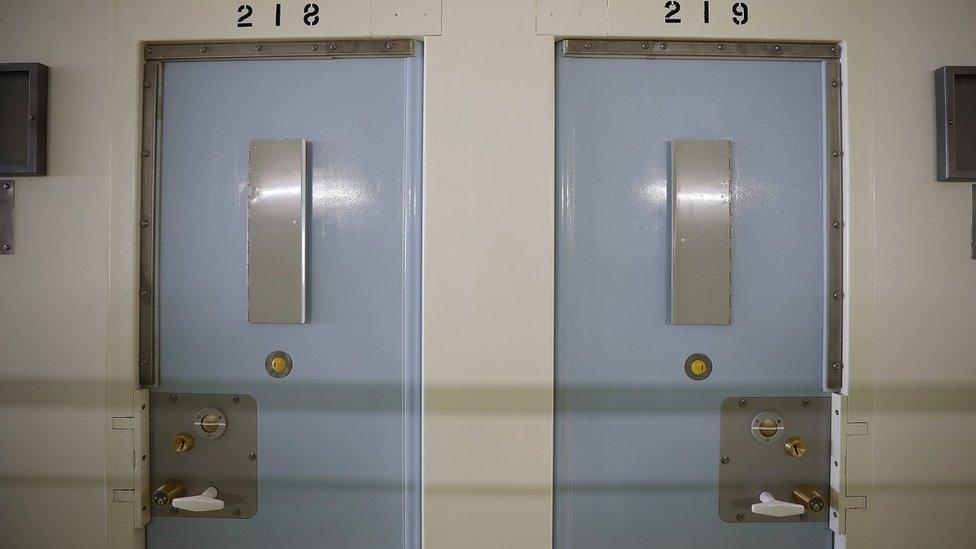
- Published24 May 2018
